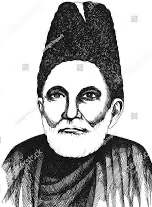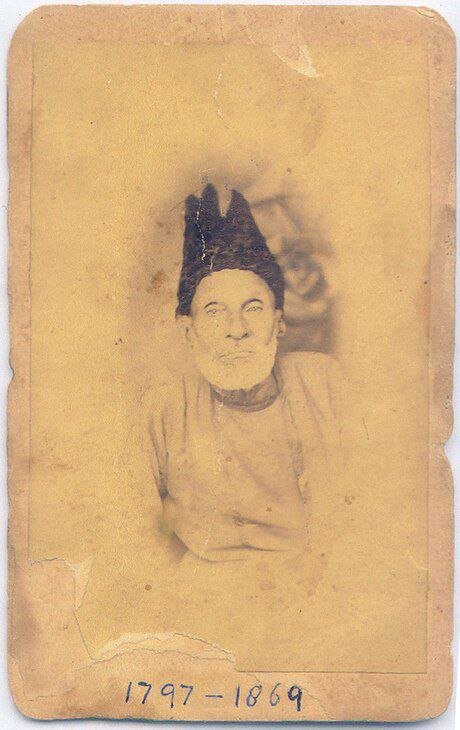
Mirza Ghalib:
“Mirza Ghalib, one of the most celebrated Urdu poets, had a distinctive approach
To life and poetry that set him apart from his contemporaries. His works reflect his deep introspection, philosophical musings, and a profound understanding of human emotions.”
The more painful his life became the more unconventional and proudly his couplets evolved
-
He was appointed as a Urdu lecturer in a college.He didnt join the college even under this poverty just because the principal didnt come out of his office to receive him on the gate.Yeah that is Ghalib for you.
-
Satire and taunt were his first languages
-
He was the poet of romance, a poet of emotions ,a bomb of satire and logic and wit
-
He used to gamble on the streets and fly kites and drink hookaah all day long.
-
His own couplets were recited by the kings and beggars alike
-
The street “gali Qasim Jaan” was his humble residence
-
He wrote about his own poverty in such a way that feels like he is proud of even that.
-
Ghalib was a poet of common man .A man of life
“Ghalib had to travel to Bengal presidency to bargain his pensions to the
english.He stayed in Varanasi for few days on the historical Assi Ghat .He remarked
‘Banaras ki hawa murdon me bhi rooh phoonk deti hai’
-The ambience of Banaras awakes the life in soulless “
Ghalib says
Baazeecha e atfaal hai duniya mere aage
Hota hai shab o roz tamasha mere aage
The worls is a childs play for me
everyday there is some drama is played
Kahan maikhaane ka darwaza ghalib aur kahan vaaiz
par itna jante hain kal wo ata tha ki ham nikle
Theres no comparison between the preacher and the taverns gateBut sure am I of one thing, here He comes I leave
Hui muddat ki ghalib mar gaya par yaad aata hai
wo har ik baat pe kehna ki yu hota to kya hota
Na tha kuch to khuda tha kuch na hota to khuda hotaa
Duboya mujhko hone ne na hota mai to kya hota
Ghalib’s life coincided with the tumultuous period of the Indian Rebellion of 1857. As a witness to these historic events, his poetry often reflects the impact of the war on his personal experiences and the society at large. Through his verses, Ghalib captures the pain, loss, and resilience of a nation grappling with the aftermath of the rebellion.Though Ghalib had always been in support of the English but in his letters to his friends he have bitterly criticised the destruction of his beloved Delhi
Ghalib vs Alcohol
Once Ghalib got his monthly pension and he went to Meruth and returned with two donkeys loaded with carats packed with wine bottles.This incident enraged her wife .She started yelling at him that what will happen to us for the whole month how would we eat and buy foods and other chores.To this our protege replied in his most witty and humorous ways
“You fool,Dont you remember Gods promise? He promises that he will arrange food
So food ,he will arrange and wine is haram so I have to arrange it myself”
Ghalib vs Ustad Ibrahim Zauq
Ghalib’s rivalry with the court poet Ustad Ibrahim Zauq is well-known in the literary circles of his time. Both poets were vying for recognition and patronage from the Mughal court. While Zauq enjoyed the favor of the emperor, Ghalib’s unconventional style and rebellious spirit brought him a different kind of fame.
Ghalib’s poetry challenged the traditional norms of Urdu poetry, often incorporating Persian and Arabic words and expressions. His verses were characterized by their depth, complexity, and an ability to evoke intense emotions. This unique approach to poetry set him apart from the more traditional and courtly style of Zauq.
Ustad Zauq was once passing by the road
in his palanquin and Ghalib was playing cards on the roadside
Ghalib commented on him
Bana hai shaah ka musaahib phire hai itraata
wagarna shahar me ghalib ki aabru kya hai
Proudly trotting in streets, As he is emperors courtier
What else is there to Ghalibs fame
To this taunt and misbehaviour of Ghalib he complained about him to Bahadur Shah Zafar.
Ghalib was called on to question about his behaviour
Ghalib very wittingly said “It wasnt a satire your majesty.Who am I to do this demeaning act to Ustaad Zauq.
it was just a couplet from my current ghazal.
To this ,the other courtiers asked Ghalib to recite the whole ghazal then.
Ghalib took out a piece of paper from his pocket and recited the ghazal
हर एक बात पे कहते हो तुम कि तू क्या है
तुम्हीं कहो कि ये अंदाज़-ए-गुफ़्तुगू क्या है
न शो’ले में ये करिश्मा न बर्क़ में ये अदा
कोई बताओ कि वो शोख़-ए-तुंद-ख़ू क्या है
ये रश्क है कि वो होता है हम-सुख़न तुम से
वगर्ना ख़ौफ़-ए-बद-आमोज़ी-ए-अदू क्या है
चिपक रहा है बदन पर लहू से पैराहन
हमारे जैब को अब हाजत-ए-रफ़ू क्या है
जला है जिस्म जहाँ दिल भी जल गया होगा
कुरेदते हो जो अब राख जुस्तुजू क्या है
रगों में दौड़ते फिरने के हम नहीं क़ाइल
जब आँख ही से न टपका तो फिर लहू क्या है
वो चीज़ जिस के लिए हम को हो बहिश्त अज़ीज़
सिवाए बादा-ए-गुलफ़ाम-ए-मुश्क-बू क्या है
पियूँ शराब अगर ख़ुम भी देख लूँ दो-चार
ये शीशा ओ क़दह ओ कूज़ा ओ सुबू क्या है
रही न ताक़त-ए-गुफ़्तार और अगर हो भी
तो किस उमीद पे कहिए कि आरज़ू क्या है
हुआ है शह का मुसाहिब फिरे है इतराता
वगर्ना शहर में ‘ग़ालिब’ की आबरू क्या है
credit: Rekhta https://www.rekhta.org/ghazals/har-ek-baat-pe-kahte-ho-tum-ki-tuu-kyaa-hai-mirza-ghalib-ghazals?lang=hi#:~:text=%E0%A4%AB%E0%A4%BF%E0%A4%B0%20%E0%A4%B2%E0%A4%B9%E0%A5%82%20%E0%A4%95%E0%A5%8D%E0%A4%AF%E0%A4%BE-,%E0%A4%B9%E0%A5%88%20,-%E0%A4%B5%E0%A5%8B%20%E0%A4%9A%E0%A5%80%E0%A4%9C%E0%A4%BC%20%E0%A4%9C%E0%A4%BF%E0%A4%B8
The whole of the assembly roared with applause and praise for the very unknown Mirza Asadullah Khan Ghalib.
The courtiers asked him for the piece of paper to record it officially and Ghalib gave him the paper and went out smiling.
To the much surprise ,
There was nothing written on the paper
Mirza Ghalib just recited whole of the gazhal he just improvised and it has become one of his masterpiece.
That was the true genius of Ghalib.


